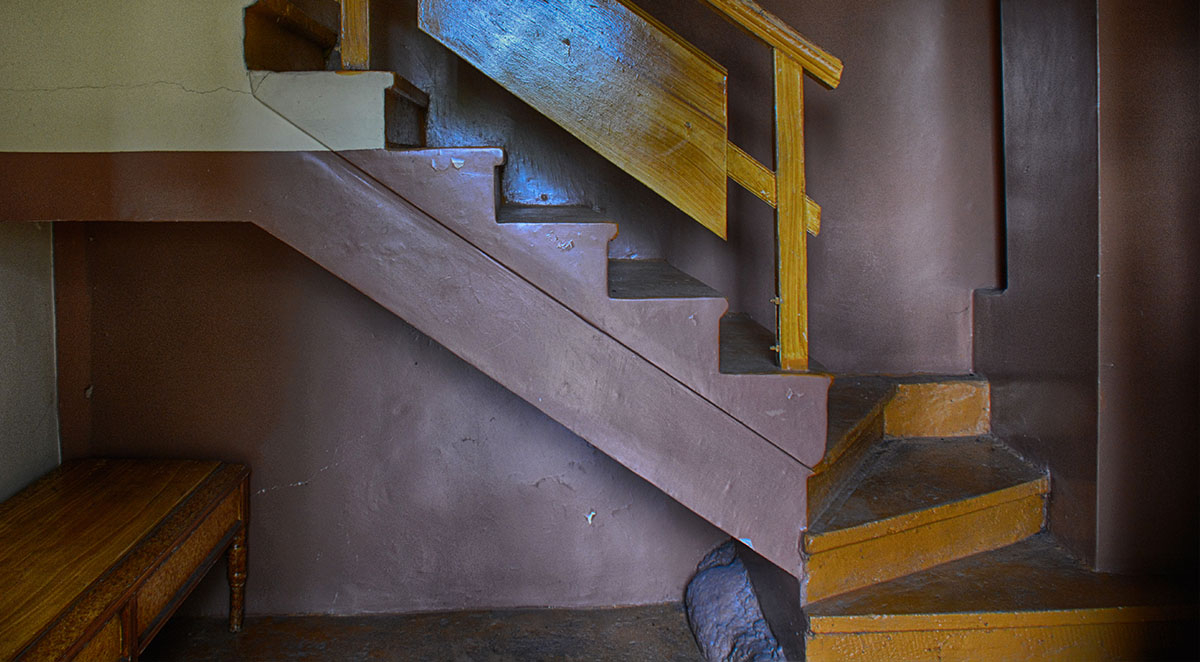- A humid basement creates a hothouse for bugs. One of the most important steps for decreasing the moistness in a basement is to run a dehumidifier. It works best when you close the area off. Dehumidifiers literally collect water from the air, so you'll need to empty them regularly. It's best to run a dehumidifier constantly, or else the humidity will just return.
- Rooms that get wet may include bathrooms, laundry rooms, and kitchens. These should all have a good amount of air circulation. That circulation will help exchange humid air with dry air. Any room that sees a lot of moisture will trap that moisture and let it accumulate every time it's used unless you have air circulation or a dehumidifier.
- Leaking pipes are a major problem. A leak can create a small puddle or just a certain amount of condensation on the pipes themselves. Either way, it provides water that bugs can access. Check your pipes for leaks or condensation. This includes under your sink and behind your toilets. Check every pipe you can access. Where you find a leak, it's time to fix it.
- A different kind of leak can happen where caulking has worn down. Re-check the caulking around your showers and tubs. Even a minor gap or break in the caulk can mean that water is accumulating in a wall void or underneath your flooring.
- Check the places where pipes and wiring come into the home. If you have a gap coming in from the outside, this is an easy way for water to trickle into your basement. It's also an easy path for bugs to find a way into your home.
- Look for places where you have standing water, both inside and around your property. Each of these places makes for an ideal mosquito breeding ground. Dump the water out and fix whatever allowed the water to collect in the first place. Flower pots, debris, dead tree trunks and limbs, old tires, trash cans – mosquitoes only need a bit of water here and there to surge their numbers on your property.
- Clean your gutters. When gutters back up, they do one of two things. Either you create pools of water in them that are perfect breeding grounds for mosquitoes. Or the water simply sloshes over the sides and runs down the exterior of your home. This can wear down the seals around windows, allowing more moisture to creep in and run inside the wall.
- Mulch is great for your garden because it traps moisture. It saves on watering costs because it helps the soil retain water. This also means that you surround your home with a moisture-retaining covering that bugs love. This doesn't mean you can't use mulch. Just be sure that you only use the recommended amount, and that the mulch never comes up directly against your home. Ensure there's at the very least a six-inch gap of dry soil between the mulch and the foundation or walls of your home.
- Turn off your sprinklers after it's rained, and make sure they aren't dousing your home when it's dry. Move them far enough away, or adjust their angle or water pressure. Yes, your home is built to withstand rain, but people have a tendency to let their sprinklers' automatic system keep going even after it's rained. If you do this when the soil is saturated, then you're only adding to water that needs to go somewhere – and if there's a route into your basement, that's where it'll go.
- If solutions like this still aren't solving the problem, it's time for a professional pest control specialist to come into the picture. They're skilled at coming up with a plan to remove pests. This much is obvious. What people forget about pest control specialists is that they're also experts at the environmental conditions that attract pests in the first place.
They won't just get rid of the bugs, they'll also investigate why you developed an infestation in the first place. They're trained to identify and fix many factors. Remember, the goal isn't just to get rid of bugs. It's to get rid of bugs and ensure that they don't come back.
For your tough pest problems, be sure to call in the pros: Rid-a-Bug is here to help.

